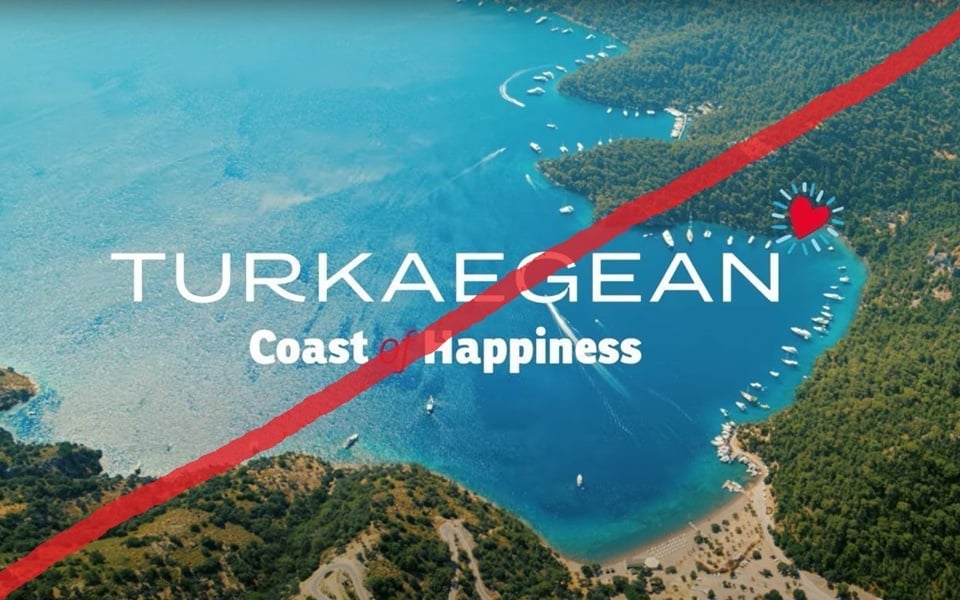The Turkey Tourism Promotion and Development Organization is struggling to prove the “Turkaegean” trademark does not include geographical indications and, therefore, that the decision to cancel it by the European Union Intellectual Property Office (EUIPO) should be rejected.
On March 7 the Turkish organization appealed against the decision by which the EUIPO on January 10 canceled the “Turkaegean” trademark, which had been registered for use within the EU by the Turkish Tourism Organization since December 16, 2021.
However, according to estimates by legal and market sources with knowledge of trademark issues, the fact that the appeal process has not progressed to a second round of requests for observations strongly suggests it will be rejected.
The Greek side sent its observations on the allegations made by Turkey on August 25. Interestingly, the Turkish organization changed its legal representative once again after the decision to cancel the “Turkaegean” trademark, with the Spanish company Elzaburu (since May 5) being the third in a row to take on the case on behalf of the Turks.
One of the main reasons for the cancellation of “Turkaegean” was the fact it contains strong geographical indications, which conflicts with EU law on trademark registration. According to the EUIPO decision, the “Turkaegean” trademark is perceived by the English-speaking public of the EU as the Turkish part of the Aegean.
The main argument in the appeal text attempts to overturn that point: “The term Turkaegean is an original neologism created for my client and which is in no way part of the common or customary language of the relevant consumers, and proof of this is that, as has already been established at first instance, it is not found in any dictionary of any of the languages spoken in the EU,” states the text sent to the EUIPO on May 12.
In the same 72-page text, it even attempts to argue that the word “Turk” does not necessarily have a geographical designation, as it can refer to anyone in Central Asia who speaks Turkish and is for example from Turkmenistan, to a breed of horse from Turkey, and even to a violent person.
